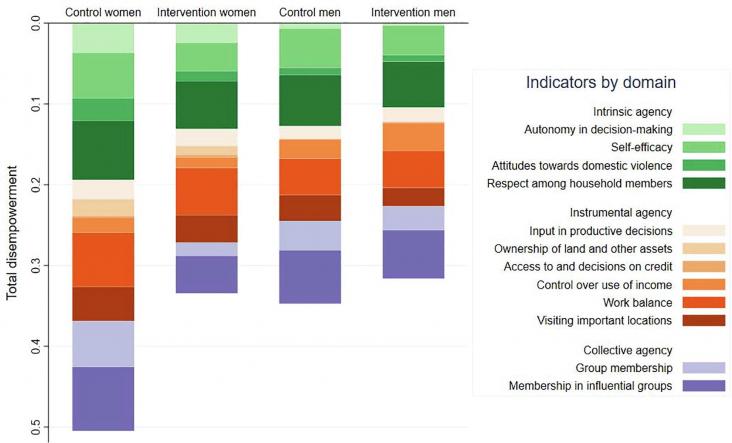
This Study supports SDG 5 and 3 by examining the role of improved women's agency on the pathway from the intervention to nutritional impacts.
This Article supports SDG 3 and 7 by estimating the prevalence of solid-fuel use with high spatial resolution to explore subnational inequalities, assess local progress, and assess the effects on health in LMICs without universal access to clean fuels.

Drawing on their project investigating multiple aspects of Trustworthy Autonomous Systems (TAS), the authors present their 'TAS for Health at Home' findings, exploring how assistive technology could and should be designed to support healthcare at home using principles of Responsible Research and Innovation (RRI).
![Overview of brain [64Cu]-ATSM retention and mitochondrial abnormalities in cells from Huntington's disease carriers, at premanifest and manifest disease stages, and in presymptomatic YAC128 mice. Overview of brain [64Cu]-ATSM retention and mitochondrial abnormalities in cells from Huntington's disease carriers, at premanifest and manifest disease stages, and in presymptomatic YAC128 mice.](https://sdgresources.relx.com/sites/default/files/styles/sus_content_listing_image/public/mitochondrial_and_redox_modifications.jpg?itok=8Fybdkks)
Deficits in mitochondrial function and redox deregulation have been attributed to Huntington's disease (HD). However, whether these changes occur in early stages of the disease and can be detected in vivo is still unclear. In this article, the authors analysed changes in mitochondrial function and production of reactive oxygen species (ROS) at early stages and with disease progression.
Most disease-gene association methods do not account for gene-gene interactions, even though these play a crucial role in complex, polygenic diseases like Alzheimer's disease (AD).
This Article supports SDG 3 by estimating the impacts of the centralisation of specialist cancer services, focusing on travel time, equity of access, outcomes, and hospital workload. Using rectal cancer surgery centres as an example the authors found increases in travel times but reductions in readmission rates.
The article suggests actions to reduce the negative effect of pandemics on the healthcare workers in future situations, based on lessons learnt from COVID19.
This Article supports SDGs 3 and 5, describing intimate partner violence within military communities and drawing comparisons with a general population cohort.
This study assesed how participation in an NSA (Nutrition-Sensitive Agriculture) intervention affected mothers' time allocation to child care. The observation of women-child pairs participating in the intervention and control arms of the NL (Nutrition Links) project did not reveal any differentials in the mothers’ time for care. In summary, this study found that participating in an NSA intervention was not associated with mothers' time for child care or any care received by the child. However, the odds of care provided by another person was associated with being part of the NL-I (Nutrition Links Intervention) group.
This article aligns with the SDG goal 3 of Good health and wellbeing, SDG 10 Reduced inequalities, and SDG 12 Responsible consumption and production by proposing Choosing wisely recommendations to help general practitioners adopt a more rational and cost-effective approach to treating patients with viral hepatitis in Brazil and Latin America.
